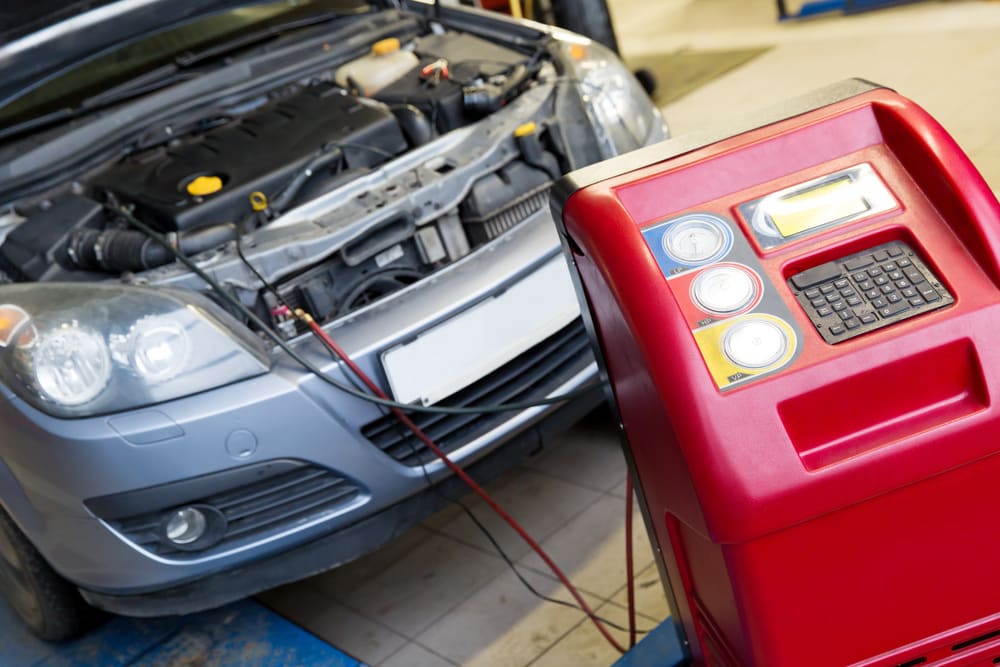

All air conditioners use a refrigerant, whether it's your car’s HVAC system, a central heating and air system, or your home’s refrigerator. Refrigerant is what makes the system operate. Refrigerants are compressed from gas to liquid – when a liquid, they’re cycled from the condenser through the rest of the high-pressure side, where they absorb heat. When they reach the low pressure side, they transform back to their gaseous form and begin to dissipate the heat they’ve absorbed before being recirculated through the system once more.
Types of refrigerant
Freon is a brand name registered to DuPont, and it’s applied to quite a few different refrigerants, the most common of which is R-12. Once, this was the most common type of refrigerant used in automotive air conditioners, but it is being phased out. You can tell if your car uses R-12 or R-134a by looking at the input taps.
How to tell if your car uses refrigerant
As of 1990, the US passed the Clean Air Act, which specifically mandated that all cars manufactured after that date could only use R-134a, which is a different type of refrigerant, and does not use the brand name Freon. The act also made it illegal to produce any more R-12. While there is still some of this refrigerant available, the amount continues to decrease, which means that the costs of recharging a car with this type of refrigerant will continue to increase.
The only ways around this particular issue is to either purchase a car that was manufactured after 1990, decide not to use the air conditioner, or have your current system retrofitted to use R-134a. Note that you cannot mix R-12 and R-134a – they are completely different and a retrofit will require new high and low pressure lines, a new condenser, accumulator and more. It can be a costly conversion, but given the increasing price of R-12, it might be worth it to consider the retrofit.



